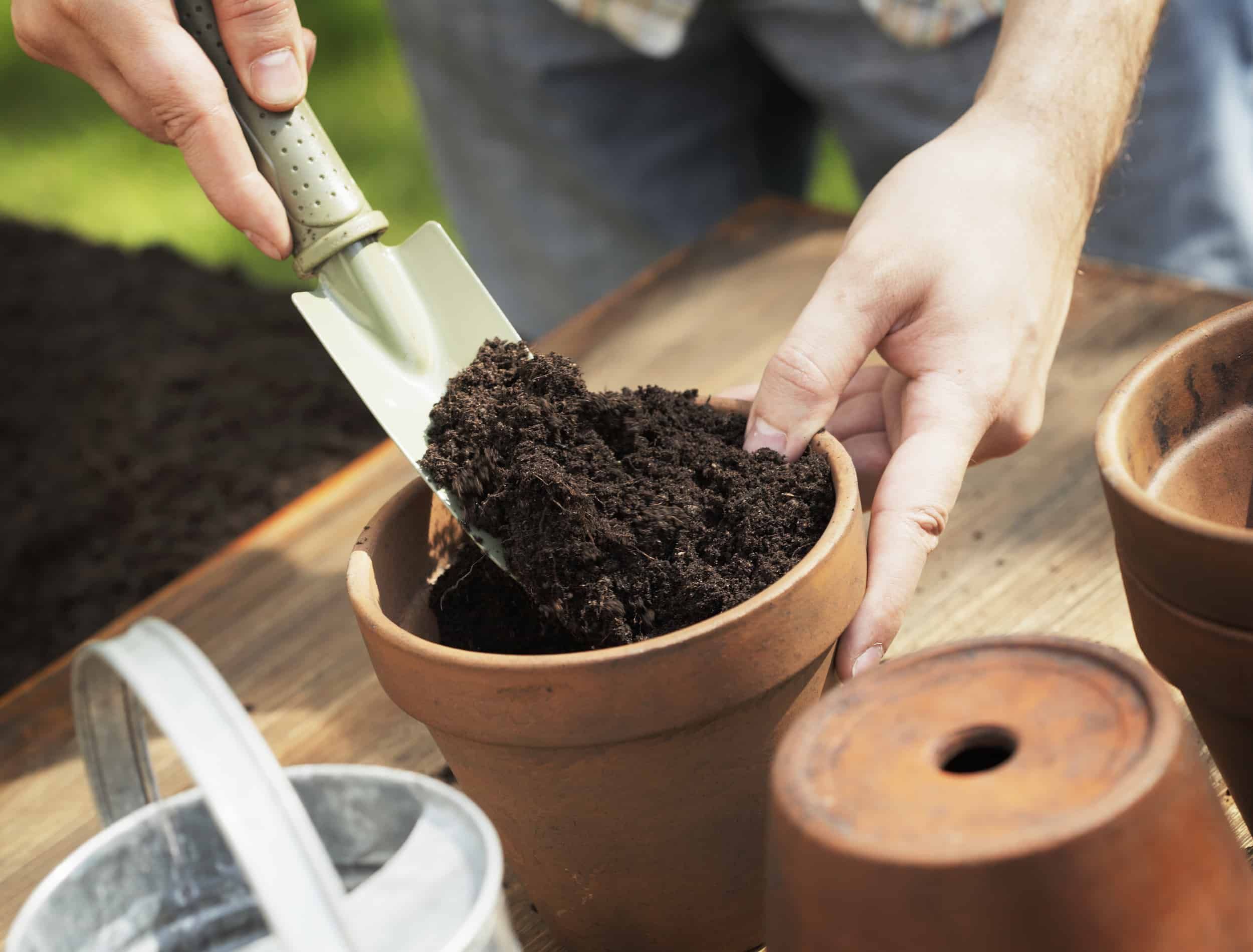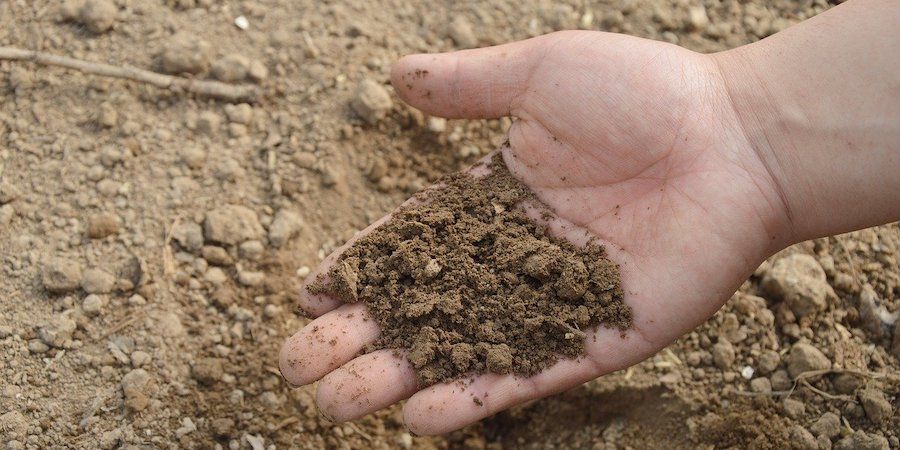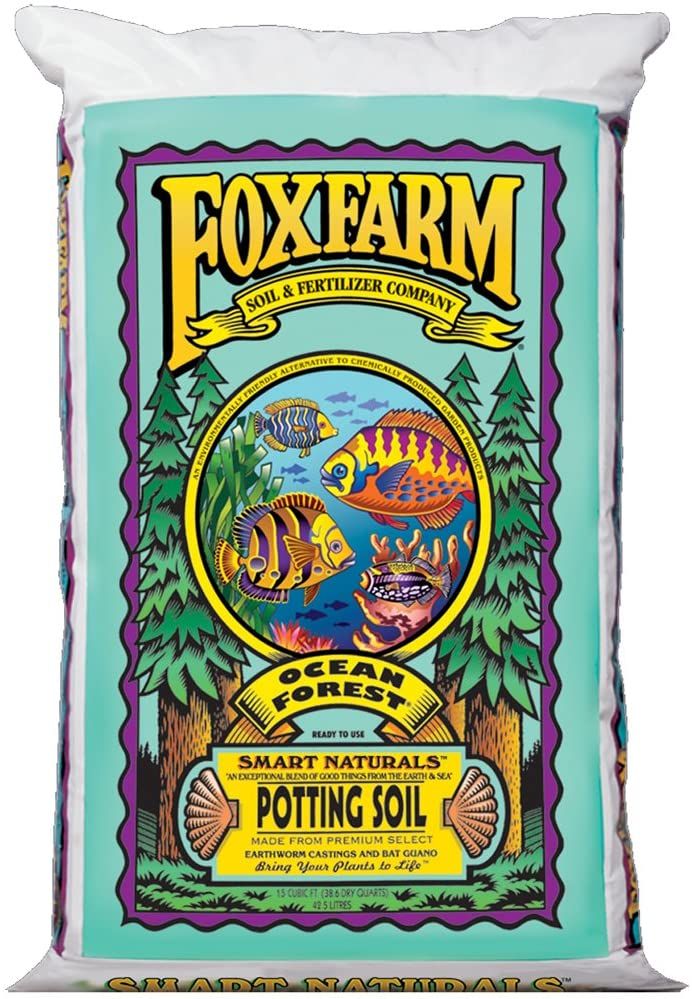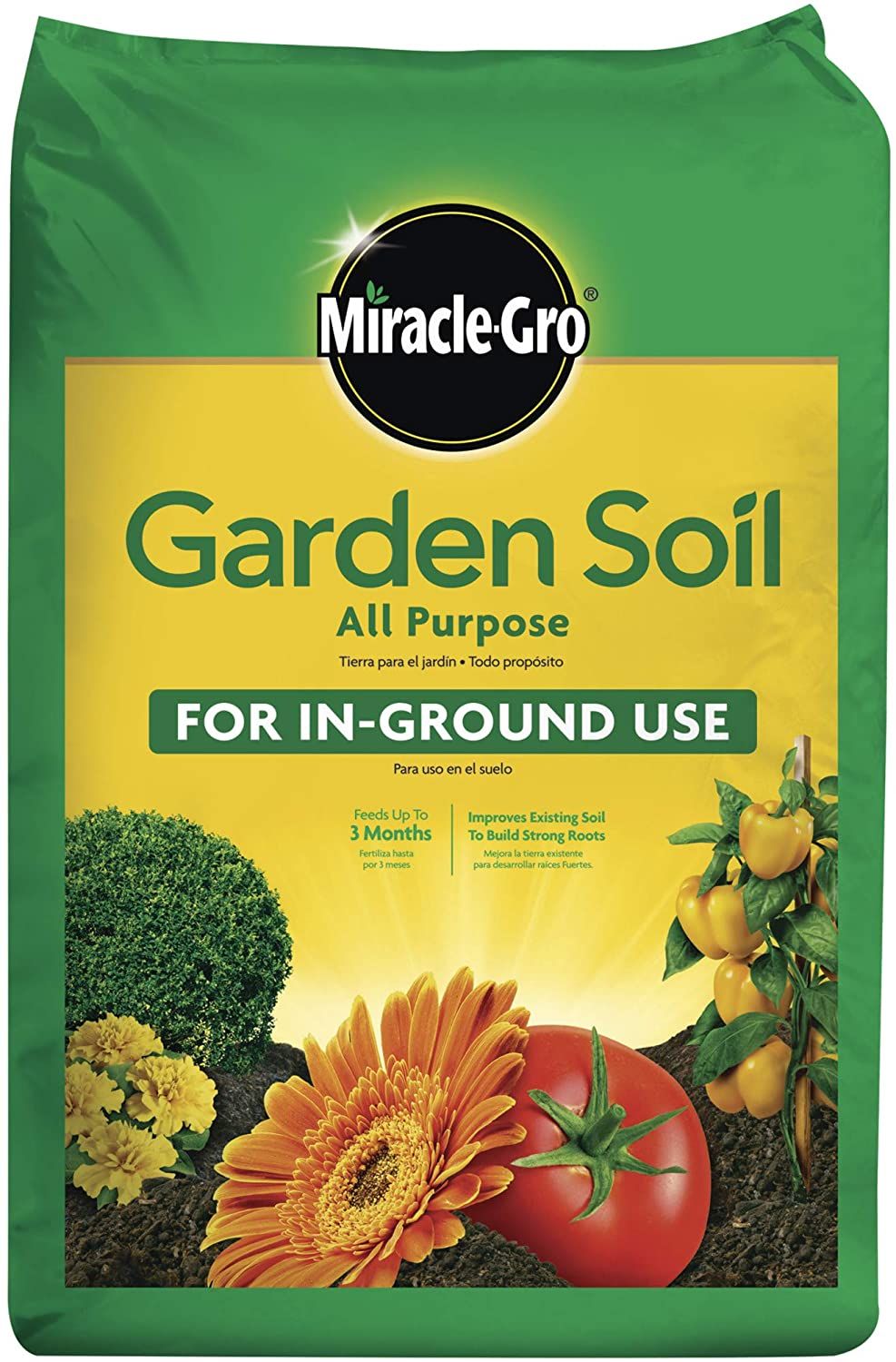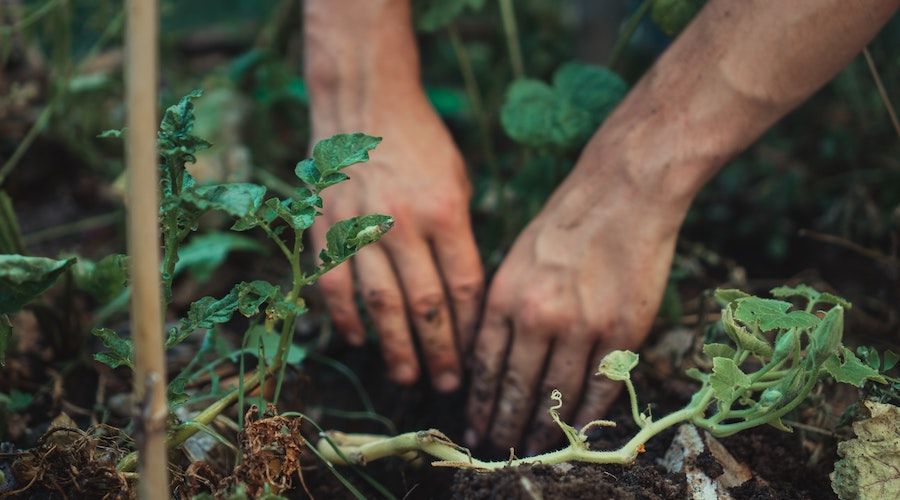With the arrival of spring, every gardener has to make a very important choice - what soil to use. This decision will affect the health and growth of the plants so it is quite crucial to find the best one. Do you need potting soil or gardening soil? What is the difference between the two? The answer is quite simple - determine the purpose first. For plants in the ground, garden soils are better, whereas if you are doing container gardening you should go for potting soil. Potting soil has all the nutrients needed by plants throughout the season, so it is quite good for annuals, but not capable of supporting perennials, unlike garden soil.
Potting Soil vs Garden Soil: Which One’s Better?
It is commonly believed that there’s no difference between potting soil and garden soil, and this leads to them being used interchangeably. This, in turn, can sometimes fatally affect the plants. There are some significant differences between the two.
In the first place, garden soil is more generic and is mostly used in outdoor gardening, because of its density, which allows for most plants to grow without extra root support. However, potting soil is used primarily for potted plants because it’s much lighter and fluffier. It comes in a wide variety of mixes for specific plant types.
Garden soil is made of bark mulch, compost, sand, and minerals. They help increase the nutrition levels of the topsoil. Moreover, the contents create a texture that can retain moisture very well but can also allow aeration. Meanwhile, potting soil contains peat moss, coconut coir, perlite, vermiculite, pine bark, and sometimes lime, if you need to balance the pH.
Last but not least, potting soil is sterile most of the time. This means that there’s a lower risk of fungi, pests, and diseases for the plants. On the other hand, garden soil is not sterile and that can often mean that when using it, you might have to deal with fungi, gnats, and other issues.
So which one is better, you may ask? The truth is that before you choose a soil type; you have to determine the purpose because that makes all the difference. If you are looking to do outdoor container gardening, growing vegetables or fruit, then garden soil may just be the thing for you. Sure it is not sterile, but its large contents of organic matter are a tremendous advantage since they can provide plants with much-needed nutrients.
If you want to do indoor or outdoor container gardening, then you should choose potting soil. There are many mixes out there, each suited for a certain type of plant, which makes it highly effective. Unfortunately, you will have to pay a higher price for the higher quality.
Image credits: Jing via Pixabay
Pros and Cons of Potting Soil
Using potting soil has its advantages and disadvantages. The most notable pros are:
- It is a very good retainer of moisture. This is crucial for the roots because if they stay dry for prolonged periods of time, the plant will suffer from dehydration.
- It may or may not contain garden soil. It can easily be 100% organic, but you will have to check the package label, just in case.
- Its pH is above 7. Unless you are dealing with acid-loving plants - then it will be between 4 and 6.
- It contains a few substrates, including peat, plant material, perlite, and organic matter.
- It usually contains a root activator, which is responsible for the stimulation and growth of the root system.
- It can be refreshed for future use, which makes it a nature-friendly way to go.
- It is quite affordable.
However, there are a few disadvantages too:
- Potting soil tends to compact. There is a risk of it turning into a solid block. This can cause a lot of harm because water will no longer be absorbed until you soak the pot in a bucket of water for about half an hour.
- It is not sterile. This can make it dangerous to plants that are more susceptible to fungus, disease, and pests.
- It doesn’t contain many nutrients, only less than 1% nitrogen, phosphorus, and potassium.
- It can contain compost.
Backyard Boss Recommended Best Potting Soil
If you want to purchase the best potting soil on the market at an affordable price and high quality, then FoxFarm Ocean Forest FX14000 -1.5 Cubic Foot Organic Potting Soil is the way to go.
This potting soil is a fantastic choice because it is much lighter and fluffier than other brands. It contains earthworm manure, crab meal, bat guano, compost humus, sand, peat moss, and fish remains. Not to mention, it contains no nitrogen, making it the 100% organic choice.
- It is preferred by most gardeners for container gardening.
- It contains earthworm manure, which is extremely helpful to all plants.
- Due to its fluffy and light nature, water retention, drainage and airflow are no issue.
- The amount of nutrients and minerals it contains is very high because of the unique ingredients it consists of.
- It isn’t available in all stores, so you will have to do an online order.
- The more experienced user base shares that this potting soil is too “hot” for the seedlings.
- While the price is worth it for the quality of the product received, it can still be on the high end.
|
|
Pros and Cons of Garden Soil
Just like the potting soil, garden soil has its drawbacks and benefits. Some of its pros are:
- It surrounds the roots very well, giving them a wonderful environment to thrive and develop a thick root base.
- Garden soil can easily be refreshed for use in the future, making it another 100% eco-friendly option. All you need to do is save your kitchen scraps and incorporate them into the soil to better the texture and level of nutrients.
- It contains large amounts of organic matter, which provides the plants with many nutrients.
However, there are a few disadvantages too:
- The soil pH can vary depending on the location. In order to ensure that your plants are safe and in a healthy environment, it is important to test your soil once every two seasons or so.
- Garden soil is heavier than potting soil and this can lead to plants being suffocated by it.
Backyard Boss Recommended Best Garden Soil
We saved you some time by doing the research ourselves and determining the best garden soil. It is the Miracle-Gro Garden Soil All Purpose.
The Miracle-Gro Garden Soil All Purpose is your one-stop-shop for a fantastic vegetable, fruit, or flower garden. It is ideal for everything from landscaping to backyard flower gardening. The soil contains plant feed for about 3 months. Its continuous release is the boost that young plants need in order to thrive. Moreover, it improves the existing soil and helps the building of strong roots.
- This garden soil has a slow-release feed for up to 3 months.
- It is fairly affordable which makes it a great choice for those on a budget.
- Existing soil is improved and this helps in the building of stronger roots.
- Users shared that this garden soil is of very high quality and that the growth rate is great.
- Some users have reported pieces of metal and plastic in their packages.
- There are instances in which the package contains wood chunks that are too large for container gardening.
- This garden soil is very susceptible to fungus gnats.
|
|
Frequently Asked Questions
1. Can garden soil be used instead of potting soil?
Yes, but only in moderate amounts. Garden soil can be mixed with a potting mix to create a base for indoor or outdoor container gardening, but should never be used straight in pots and containers. This is because garden soil is heavy and can suffocate plants.
2. What is the difference between potting soil and potting mix?
Potting mix is great for container gardening, while potting soil is great for non-container gardening. Here's a detailed article about Potting Mix vs. Potting Soil and what you need to keep in mind when working with them.
3. Is potting soil better than garden soil?
There's no definite answer because garden soil is great for outdoor use and potting soil is perfect for indoor / container use. Potting soil is great for small-scale container gardening while you'll benefit from garden soil for large-scale outdoor gardening.
4. Can potting soil be used for raised garden beds?
As a rule of thumb, use potting soil for container gardening because of its light and fluffy texture. For raised garden beds, you can use garden soil because it's heavier than potting soil. A heavier texture will prevent and/or reduce soil erosion. You can use a combination of garden soil and potting soil, as long as the ratio of garden soil is higher than potting soil.
5. How to tell the difference between good soil and bad soil?
Different soil tests will help you understand the texture and composition of your soil before using it for gardening. That said, both garden and potting soil can be refreshed, making it an eco-friendly option for avid gardeners. Here's a detailed article explaining the difference between good soil and bad soil.
6. What happens if you use potting soil in the ground?
Potting soil is best for container gardening, but if you do end up combining potting soil and garden soil in equal ratios, it can cause the soil to dry out faster, needing frequent watering. The faster the soil dries, the better it drains, but if you must combine your garden soil, the best choice would be topsoil.
Image credits: Jonathan Kemper via Unsplash
To Sum It Up
So summing it up, potting soils and garden soils have different contents and are all-in-all quite different all around. Garden soil is good for outdoor gardening and potting soil is good for indoor gardening, especially for seed initiation. From an economic point of view, garden soil is superior because it can easily be repaired by only using your kitchen scraps. From a versatility point of view, potting soil is superior.
If you want to get the best potting soil on the market, you should definitely go for the FoxFarm Ocean Forest FX14000 -1.5 Cubic Foot Organic Potting Soil. It is the go-to potting soil for a lot of experienced gardeners, who share that it’s very effective, offers long-term feed, and is less prone to gnats. If you are looking for the best garden soil, then you should look no further than Miracle-Gro Garden Soil All Purpose. It will also offer a long-term feed, even though it is at only three months. Moreover, it is extremely versatile and can be used to grow fruit, veggies, and flowers.
Happy Gardening!

